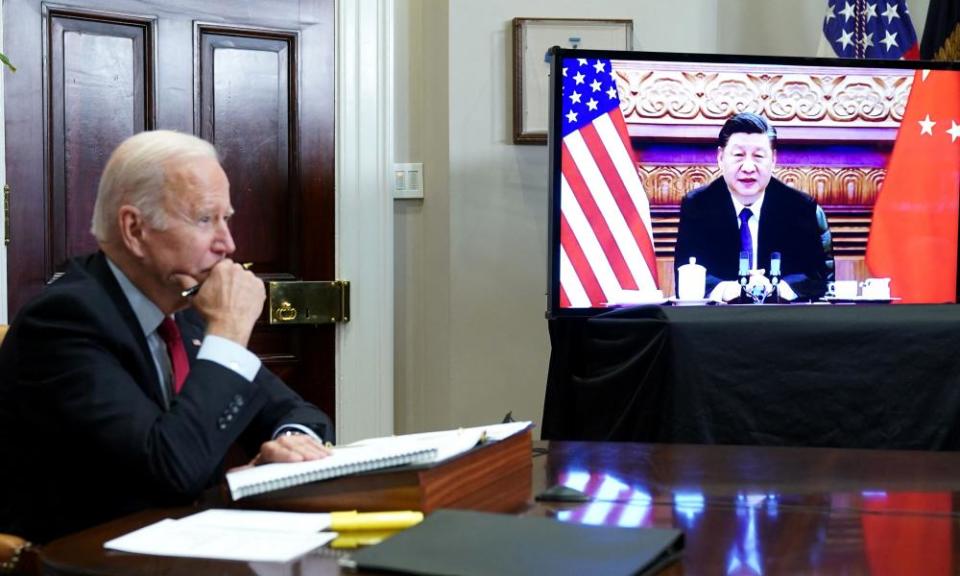China attacks ‘US-style democracy’ prior to Biden summit

Beijing highlights virtues of its own one-party model in slew of scathing criticisms of western system
China has launched a campaign to discredit what it calls US-style democracy in advance of the first of Joe Biden’s two “summits of democracy” later this week.
Over recent days, official Chinese media outlets and diplomats have made a string of scathing attacks on the US governing system, calling it “a game of money politics” and “rule of the few over the many”.
They also touted China’s one-party governing model, calling it “socialist democracy with Chinese characteristics” and “a whole-process democracy”. On 4 December, Beijing issued a lengthy paper entitled “China: Democracy That Works”.
The paper was dismissed by many western China watchers, who pointed out that under China’s system of government, political opposition to the ruling Communist party is not allowed.
Citizens can vote in local elections, but candidates are vetted by the authorities. Independent candidates who are perceived not to align with the ruling party’s political agenda are often harassed or arrested.
“Xi has long used the claim that the party’s governance is superior to that of the west, in order to legitimise the party’s monopoly of power,” Charles Parton, a former British diplomat and a senior associate fellow at the Royal United Services Institute, told Reuters news agency.
Invited attendees to the first summit on 9 and 10 December at a virtual meeting include Tsai Ing-wen, the democratically elected leader of Taiwan, an island Beijing claims as its own.
On Sunday, China’s foreign ministry released a report on the state of democracy in the US. The state-owned Xinhua news agency accompanied the release with a series of cartoons that mocked the US system. Global Times said the report “[exposed] the deficiencies and abuse of democracy in the US”, as well as the “harm of it exporting such democracy”.
“The US is far from a ‘beacon of democracy’ and has nothing worth showing off given the chaotic American society,” Global Times quoted a Chinese academic as saying.
What's wrong with the U.S. democratic system?
Money-dominated politics: money decides everything.
Click for more: https://t.co/InsNTG38UY pic.twitter.com/IdfKqThDdZ— China Xinhua News (@XHNews) December 5, 2021
Events in the past week intended to highlight the shortcomings of US democracy also included a high-profile forum attended by the British political commentator Martin Jacques and John Ross, who was an economic and business policy director for the former mayor of London, Ken Livingstone.
Le Yucheng, China’s vice-foreign minister and also the forum’s keynote speaker, described Washington’s democracy summit as the “very opposite of democracy” because, he said, it would “do no good to global solidarity; no good to cooperation, and no good to development”.
“China’s whole-process people’s democracy is not the kind that wakes up at the time of voting and goes back to dormant afterwards,” he said.
But when asked by a foreign journalist why China seemed keen to compare itself with the United States, Eric Li, another speaker and a Chinese businessman, joked: “We are just unhappy we didn’t get invited to the party next week.”

 Yahoo Finance
Yahoo Finance 